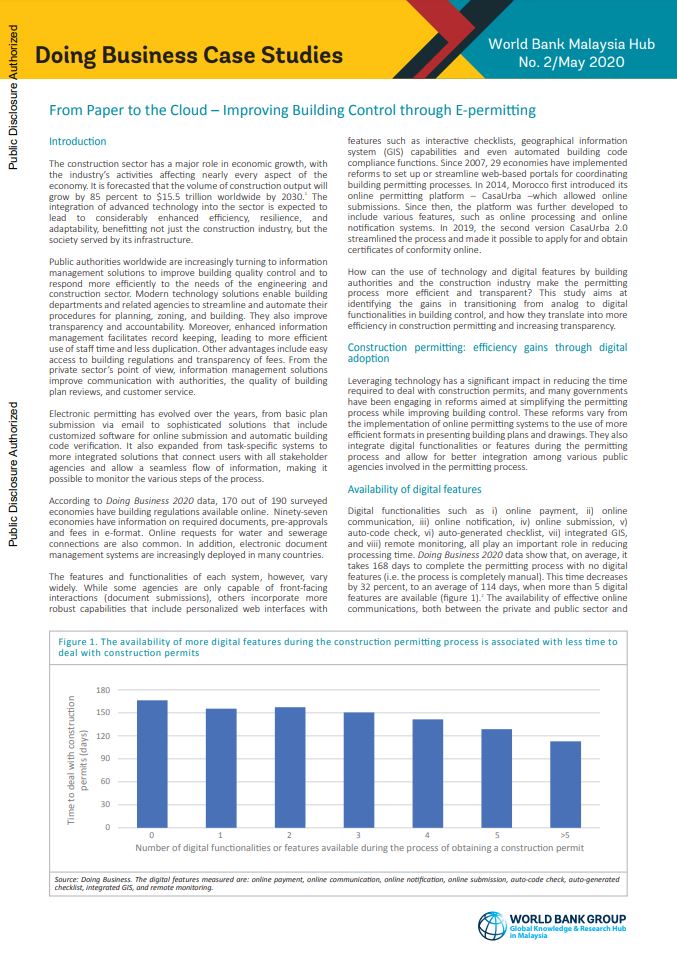
Dealing with Construction Permits: From Paper to the Cloud : Improving Building Control through E-permitting
The construction sector has a major role in economic growth, with the industry's activities affecting nearly every aspect of the economy. It is forecasted that the volume of construction output will grow by 85 percent to 15.5 trillion US Dollars worldwide by 2030. The integration of advanced technology into the sector is expected to lead to considerably enhanced efficiency, resilience, and adaptability, benefitting not just the construction industry, but the society served by its infrastructure.
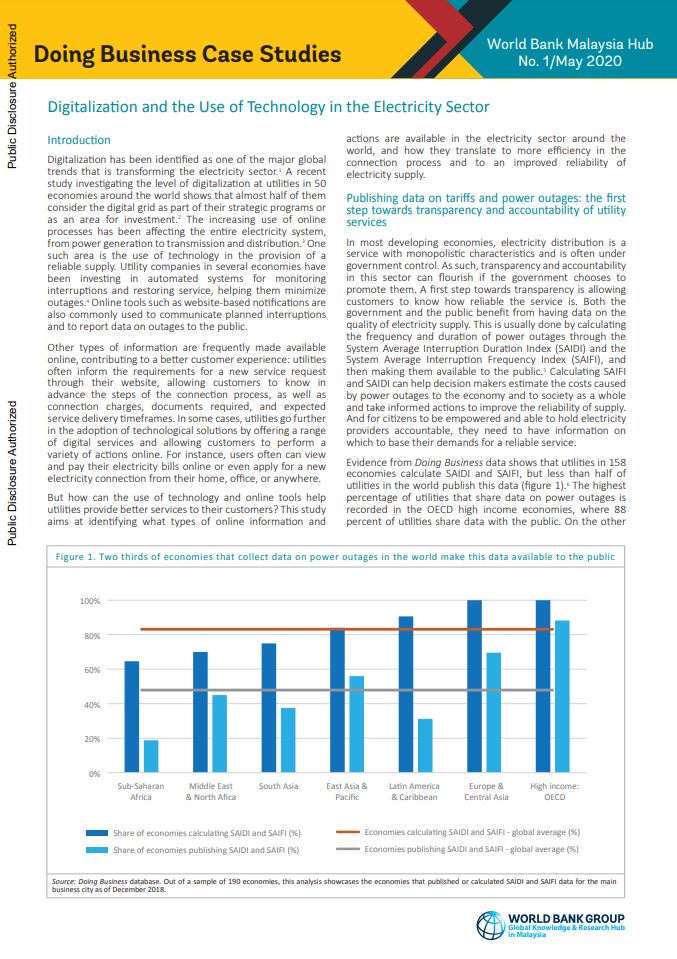
Getting Electricity: Digitalization and the Use of Technology in the Electricity Sector
Digitalization has been identified as one of the major global trends that is transforming the electricity sector. A recent study investigating the level of digitalization at utilities in 50 economies around the world shows that almost half of them consider the digital grid as part of their strategic programs or as an area for investment. The increasing use of online processes has been affecting the entire electricity system, from power generation to transmission and distribution.
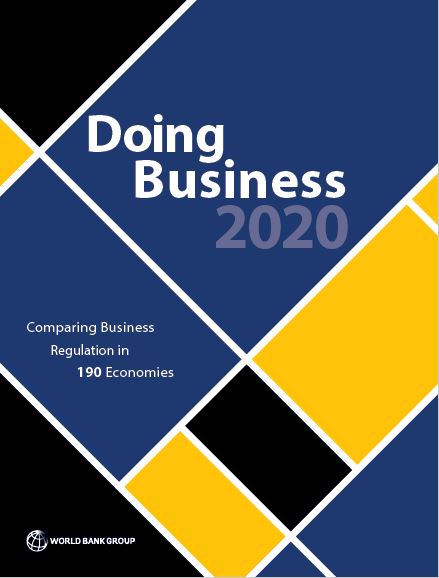
Removing obstacles to entrepreneurship
The case study on reforms analyzes prominent regulatory changes implemented by governments since the inception of Doing Business. Among the most common regulatory changes over the past 17 years are simplifying the requirements to start a company, easing tax compliance burdens, increasing access to credit, and ensuring the survival of viable businesses. The case study also discusses the effects of regulatory changes on various dimensions of economic development and investment activity.

Employing workers
The case study on employing workers highlights the positive effects of flexible employment regulation for firms, which in turn affects job creation and productivity growth. It analyzes the advantages of operating under a less rigid hiring framework that, for example, permits fixed-term contracts. In light of the changing dynamics of work, the case study further examines the benefits of flexible rules on working hours. It shows that restrictions on dismissal due to redundancy hurt firms as well as youth employment.

Contracting with the government
The contracting with the government case study measures the efficiency of public procurement. The case study describes a standardized scenario benchmarked by the indicator set and outlines a preliminary description of the methodology. Worldwide, public procurement accounts for 10–25% of GDP on average, and cumulatively governments spend approximately $9.5 trillion on public contracts every year. The efficiency of the process varies considerably, however; currently, there are no global data to benchmark such practices. The contracting with the government database constitutes a one-of-a-kind repository of comparable data on how procurement processes are carried out. The contracting with the government data will be published on the Doing Business website in November 2019. This indicator set, which has been under development for the past three years, will be included in the ease of doing business score in Doing Business 2021.
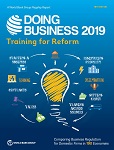
Starting a Business and Registering Property: The role of training in facilitating entreprenuership and property rights
By keeping records of a company’s formal existence and of land ownership rights, business and land registries play a critical role in any economy’s business environment. Registering a new company or a property right is best done when registry officers are well trained and knowledgeable. A combination of targeted training and effective communication to both civil servants and the public can improve the overall quality of the public goods and services provided by business and land registries.

Getting Electricity: Understanding the benefits of wiring regulation
This year Doing Business deals with private sector participation in construction regulation. Involving private sector engineers or firms in construction regulation is a trend that has been gaining traction in economies around the world. Some form of private sector participation in construction regulation is employed in 93 of the 190 economies covered by Doing Business.

Trading Across Borders: Training for trade facilitation
In today’s globalized and highly digitalized trading environment, the ability of trade professionals to benefit from electronic systems largely depends on training and communication. In recent years, Doing Business has captured reforms that highlight the fundamental role played by education, training and communication in trade facilitation.

Enforcing Contracts and Resolving Insolvency: Training and efficiency in the judicial system
The case study on enforcing contracts and resolving insolvency examines the education and training that judges receive worldwide. It highlights that training can act as an essential conduit for the introduction of new laws, methods and practices to the judiciary and that In an ever-changing business world, judges’ knowledge must be kept current on the rapidly-evolving business regulatory environment. The case study also features specific examples of two judicial systems – Indonesia and the United Arab Emirates – with adequate education and training frameworks in commercial and insolvency matters for judges.

Starting a Business: Transparency of information at business registries
Governments and civil society have come together in recent years to increase the transparency of business information. These changes have been made in the wake of a series of revelations—such as the Panama papers and the Bahamas leaks—that showed the extent to which individuals take advantage of obscure company ownership structures to illicitly move money around the globe.

Dealing with construction permits: Private sector participation in construction
This year Doing Business deals with private sector participation in construction regulation. Involving private sector engineers or firms in construction regulation is a trend that has been gaining traction in economies around the world. Some form of private sector participation in construction regulation is employed in 93 of the 190 economies covered by Doing Business.

Registering property: Using information to curb corruption
Registered property rights are necessary to support investment, productivity and growth. Registering property indicator examines the steps, time and cost involved in registering property. In addition, the topic also measures the quality of the land administration system in each economy. Transparency is a key element of the quality of land administration systems. It increases the efficiency of the real estate market and eliminates asymmetrical information between users and officials with respect to services provided by the land administration. In 2013, Transparency International reported that one in five users of land services globally claimed to have paid a bribe for services such as registering a land title or obtaining updated property ownership information. Lack of transparency can also lead to land record fraud or alteration, land document forgery and multiple allocations of the same plot of land Transparency is one of the most important tools for combating corruption—it is the basic pillar of enhancing the quality of land administration. Transparent systems strengthen public confidence in governments and facilitate substantial reductions in the cost of doing business. As a component of its registering property indicator set, Doing Business has measured the transparency of land administration systems for the past four years. This research has focused on whether information concerning the ownership and physical location of a property is public, whether essential information on the property transfer process is made accessible, if there is an independent and specific complaint mechanism to respond to issues raised by land registry users and whether statistics on property transfers in the largest business city of an economy are published.

Resolving Insolvency: The challenges of successfully implementing insolvency reforms
Doing Business tracks insolvency reforms across 190 economies. Since Doing Business 2005, 110 economies have introduced 205 changes aimed at facilitating the efficient resolution of corporate insolvency. In 2013/14, the resolving insolvency indicators started measuring whether insolvency laws complied with certain international standards, including access to reorganization proceedings for debtors and creditors. Since then, the most common type of reform recorded by the indicators has been the introduction of or improvements to reorganization procedures. Many factors, however, can make it challenging to implement insolvency reforms. This case study uses the specific examples of France, Slovenia and Thailand to illustrate successful insolvency reforms that can inspire similar efforts elsewhere. These countries introduced and improved restructuring procedures and business reorganization has become an increasingly utilized option for viable firms in financial distress.

Getting Electricity: Factors affecting the reliability of electricity supply
This case study focuses on 4 lower middle income economies with varying levels of electricity supply reliability: Guatemala and Indonesia are examples of economies with reliable electricity supply in the main business cities; Cameroon and Pakistan are examples of economies providing an unreliable supply for customers. By comparing different aspects of their energy sectors, it highlights some key elements and actors that drive, or prevent, a reliable energy supply.

Getting Electricity: Factors affecting the reliability of electricity supply
This case study focuses on 4 lower middle income economies with varying levels of electricity supply reliability: Guatemala and Indonesia are examples of economies with reliable electricity supply in the main business cities; Cameroon and Pakistan are examples of economies providing an unreliable supply for customers. By comparing different aspects of their energy sectors, it highlights some key elements and actors that drive, or prevent, a reliable energy supply.

Getting Credit - Credit Information: Casting a wide net to expand financial inclusion
A comprehensive credit reporting system that includes credit history data not only from banks but from other institutions— such as trade creditors, leasing and factoring companies, retailers and utilities and microfinance institutions—is critical in the establishment of a well-developed and inclusive financial infrastructure.

Getting Credit - Legal Rights: Two approaches to developing an integrated secured transactions regime
In recent years, modern secured transactions regimes, the milestone to facilitating access to finance for small and medium-size enterprises, have gained lots of attention from policy makers who struggle to adjust their legislations in order provide a favorable business environment for small companies.

Protecting Minority Investors: Achieving sound corporate governance
Investment is key to private sector development. Doing Business, through the protecting minority investors indicator set, measures aspects such as the protection of shareholders against directors’ misuse of corporate assets for personal gain and the rights and role of shareholders in corporate governance. The legal implications of shareholder empowerment have been studied extensively.

Paying Taxes: Assessing postfiling processes
Modern tax systems seek to optimize tax collections while minimizing administrative and taxpayer compliance costs. A low cost of tax compliance and efficient tax-related procedures are advantageous for firms. Overly complicated tax systems are associated with high levels of tax evasion, large informal sectors, more corruption and less investment.2 Tax compliance systems should be designed so as not to discourage businesses from participating in the formal economy.

Trading Across Borders: Technology gains in trade facilitation
The Doing Business trading across borders indicator measures technological advancement in the area of trade facilitation by collecting data on the time and cost of customs clearance and inspections procedures. For the first time this year, the indicator collects data on the use and advancement of single windows around the world.
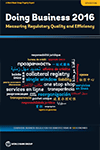
Starting a business: Third-party involvement in company formation
Formalization has many benefits. Formally registered companies tend to have greater profits, investments and productivity, while their employees benefit from social security and other legal protections. Yet, in many economies around the world, entrepreneurs continue to face excessively burdensome entry regulation. Formalizing a business may involve multiple interactions with government agencies and with third-party private professionals whose services are either required by law or desirable because of regulatory complexity.

Dealing with construction permits: Assessing quality control and safety mechanisms
This year Doing Business introduces a new indicator to measure the quality of the construction permitting system. The case study presents the summary of the main findings of the new indicator. When it comes to accessibility of regulations, the findings show that in 68% of economies the building regulations are available online. Finally, the analysis shows that economies with more efficient construction permitting systems have better quality control and safety mechanisms in place.

Getting electricity: Measuring reliability, prices and transparency
This year a new index has been introduced to measure the reliability of electricity supply and transparency of tariffs. A reliable electricity supply is vital for the operation of any business, as is the transparency of the tariffs for the advance planning of future expenses. The new index is based on quantitative data on the duration and frequency of power outages as well as qualitative information on how utilities and regulators handle power outages, and how tariffs and tariff changes are communicated to customers. As Doing Business data suggest, governments can use regulatory measures to encourage good practices in electricity supply systems.

Registering property: The paths of digitization
Over the past five years 37 economies computerized their land registry. The average time required to register a property transfer in these economies fell by almost 40% while the global average only decreased by 7%. The transition from a paper-based land administration system to a digital one involves several considerations, including the legal framework, technological capabilities, and human and social factors. Once an appropriate legal framework and data system have been established, the land records can be converted into a digital format so that they are properly stored and protected from the effects of time (excessive use, moisture) or even natural disasters (floods, earthquakes). Beyond going digital, land registries can develop new services and be connected to other agencies.

Trading across borders: A new approach to measuring trade processes
This year’s report introduces important changes in the methodology for the indicators, which are aimed at increasing the economic and policy relevance of the indicators. Under the new methodology, Doing Business measures the time and cost for three sets of procedures needed for exporting and importing: documentary compliance, border compliance and domestic transport. For the first time this year, Doing Business considers the product of comparative advantage for each economy when measuring export procedures, while for import procedures it focuses on a single, very common manufactured product (auto parts).

Enforcing contracts: Measuring good practices in the judiciary
Doing Business 2016 introduces an important change in methodology for the enforcing contracts indicators. While it continues to measure the time and cost to resolve a standardized commercial dispute, it now also tests whether each economy has adopted a series of good practices that promote quality and efficiency in the commercial court system. This case study discusses many of these good practices and concludes that economies with more judicial good practices in place tend to have faster and less costly contract enforcement.

Resolving insolvency: New funding and business survival
New funding provided to a debtor company after the start of insolvency proceedings – known as post-commencement finance - helps businesses in financial distress to recover. Doing Business collects data on specific aspects of insolvency laws and regulations in each economy, including the availability and priority of post-commencement finance. The data show possible connections between the existence of regulations on post-commencement finance and the likelihood of business survival. This case study shows that business rescue is more likely in economies where the law provides for post-commencement finance.
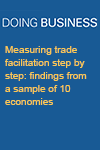
Measuring trade facilitation step by step: findings from a sample of 10 economies
In 2014 the Doing Business project’s Trading across Borders team took on additional research aimed at providing new data to complement existing tools for benchmarking in trade facilitation. The study applied a time-and-motion approach to map out the step-by-step procedures in trade. The research focused on 10 economies: Bangladesh, Benin, China, the Czech Republic, Honduras, the Republic of Korea, Moldova, Qatar, St. Lucia and Zambia.

Starting a business: The growing efficiency of company registries
Entrepreneurs should have the opportunity to turn their ideas into a business and often a first step is to formally register a company. Yet in many countries the bureaucratic obstacles and high costs imposed by inefficient company registries deter people with good business ideas from embarking on the path of formal entrepreneurship. As the first interface between the regulator and a potential new entrepreneur, company registries hold the key to the formal economy, providing businesses with a legal identity and empowering them to participate fully and within the framework of the law.

Zoning and urban planning: Understanding the benefits
Zoning is an essential tool in successful urban planning. Zoning regulations can provide a useful framework for investors and developers by specifying the most appropriate location for their projects before they apply for a construction permit. Zoning practices vary widely around the world.

Registering property: Measuring the quality of land administration systems
Doing Business collected preliminary data in 170 economies on the reliability, transparency and coverage of land registration systems and on land dispute resolution. A high quality land registration system is associated with greater access to credit, lower income inequality and a lower incidence of bribery at the land registry. The data show that examples of good practice exist in all regions of the world.

Getting credit: The importance of registries
Effective systems for secured transactions and credit reporting can improve access to finance for small and medium-size enterprises. This is confirmed by the data for the expanded indicators on getting credit, which this year also cover the functional approach to secured transactions, more features of the collateral registry and the availability of credit scores as well as online access to credit information.

Protecting minority investors: Going beyond related-party transactions
Since their inception, the Doing Business indicators on protecting minority investors measure minority shareholder protections against directors’ misuse of corporate assets for personal gain. This is done by positing specific sets of assumptions about a related-party transaction between 2 companies that involves a clear conflict of interest. Doing Business introduces 3 new measures that are unrelated to this transaction, covering a broader array of regulations that are conducive of capital market investment and that promote greater access to finance for entrepreneurs.

Paying taxes: Trends before and after the financial crisis
The global financial crisis of 2008–09 had a dramatic impact on national tax revenue and led to a sharp increase in deficits and public debt. Fiscal measures were part of the policy toolkit that governments brought to bear in supporting the recovery. Doing Business has been monitoring how governments tax businesses through its paying taxes indicators for 9 years, looking at both tax administration and tax rates. The data give interesting insights into the tax policies implemented during the financial crisis of 2008–09.

Enforcing contracts: How judicial efficiency supports freedom of contract
Freedom of contract is the power of contracting parties to freely determine the content of their agreement without interference from the government or from other individuals. Efficient contract enforcement promotes investment by influencing the decisions of economic actors. By promoting investment, good judicial institutions can also contribute to economic growth and development. This case study explores how freedom of contract is regulated in a sample of 34 economies belonging to different regions and income groups. It also looks at judicial efficiency in contract resolution in the same 34 economies, using data for the enforcing contracts indicators as a proxy for judicial efficiency.

Resolving insolvency: Measuring the strength of insolvency laws
Doing Business introduces a new component of the resolving insolvency indicator set this year, the strength of insolvency framework index. This indicator tests whether each economy has adopted internationally recognized good practices in the area of insolvency. The data show that there is a positive correlation between the recovery rate for creditors and the strength of the legal framework for insolvency.
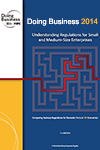
Implementing electronic tax filing and payments in Malaysia
Taxation is essential for sustainable economic development, and tax administration is a basic function of a successful state. Taxation also helps make a government accountable to its citizens. When governments spend taxpayers’ money, they are more accountable to make budget decisions transparent and accessible. By 2012, 76 of the economies measured by Doing Business had implemented electronic tax filing and payment systems.

Implementing trade single windows in Singapore, Colombia and Azerbaijan
An economy’s competitiveness is driven by many factors, including how quickly, reliably and cost-effectively the private sector can trade goods. Today’s manufacturers and agricultural producers operate in a global supply chain. Thus an efficient international trade system can increase economic opportunities and improve livelihoods—especially in poor economies with small domestic markets.

Improving court efficiency: the Republic of Korea’s e-court experience
Fair, speedy trials are essential for small enterprises embroiled in disputes. If business disputes take months or even years for courts to resolve, small firms might not have the financial strength to stay in business that long, regardless of trial outcomes. Though small and medium-size enterprises usually try to avoid going to trial, effective contract enforcement systems matter for them. Efficient courts and enforcement reduce informality, improve access to credit and increase trade.

Tackling high electricity connection costs: Trinidad and Tobago’s new approach
Access to electricity is essential for firms. Yet many entrepreneurs around the world struggle with high costs to connect to electricity grids. In 2013 the cost to connect a single warehouse to a power supply ranged from an average of $19,112 in South Asia to $38,500 in Sub-Saharan Africa. Globally the average was $29,134.

What role should risk-based inspections play in construction?
Construction accounts for a large share of GDP in most economies and is often used by governments to stimulate economic activity because of its benefits for people across socioeconomic strata. There has been growing consensus in the construction industry on the need for supervisory bodies to consider the potential risks imposed by a building, rather than applying the same inspections standards to all buildings, however introducing risk-based inspections is challenging.

Why are minimum capital requirements a concern for entrepreneurs?
Minimum capital requirements significantly slow entrepreneurship. Such requirements also fail to serve their intended purpose of protecting consumers and creditors from hastily established and potentially insolvent firms.
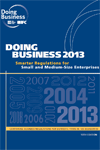
Does Doing Business matter for foreign direct investment?
This case study presents evidence suggesting that Doing Business matters for FDI, supporting a broader claim that economies that provide a good regulatory environment for domestic firms tend to also provide a good one for foreign-owned firms.

Rwanda: Fostering prosperity by promoting entrepreneurship
Since 2004 Rwanda has substantially improved access to credit, streamlined procedures for starting a business, reduced the time to register property, simplified cross-border trade and made courts more accessible for resolving commercial disputes.

How transparent is business regulation around the world?
A growing body of empirical research suggests that while transparency alone might not be enough to increase government accountability, it is certainly necessary.

Latvia: Maintaining a reform state of mind
Despite being substantially affected by the financial crisis starting in 2008, Latvia continued its reform agenda, adapting it to the new challenges the country was facing. Learn what lessons can be learned about this “reform state of mind” demonstrated by Latvia.

APEC: Sharing goals and experience
The APEC Ease of Doing Business action plan identifies “champion economies” to share information and experience and to assist other members through tailored diagnostic studies. The plan seeks to implement APEC’s view of capacity building as a central part in enhancing cooperation and accelerating progress.

Colombia: Sustaining reforms over time
Colombia’s commitment to regulatory reform has led to substantial improvements in the quality of the business environment and a more solid foundation for private sector development. While the country has more development hurdles to overcome, the measures taken over the past years have greatly improved its competitiveness.
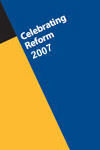
Egypt: Adding a million taxpayers
With 37% of Egypt’s workforce in the informal sector, the government realized reform was the way to broaden its tax base and increase revenues. Tax rates were high, the process of making payments was cumbersome, and tax evasion was the norm. Change was necessary.

Panama: Reforming the credit bureau law
Many of Panama’s 300,000 small and medium businesses—employing 68% of workers in the country—were cut off from loans under previous credit bureau regulations. And more than 40% of Panamanian adults, mostly the poorest, had no formal credit options. This was in spite of Panama’s advanced financial markets.

Georgia: Need land administration reform? Start a revolution
In 2004, a newly elected, reform-minded government revolutionized Georgia’s land administration system—just a matter of months upon taking office. The goal was a new land registry that guaranteed transparency and efficiency. In June 2004, Georgia established a new National Agency of Public Registry, which was to be independent in its budget.

Georgia: Licensing 159 activities—not 909
Georgia’s old byzantine system of construction licenses and permits used to deter entrepreneurs from building legally. But as the construction sector was heating up in Tbilisi, Georgia’s government decided to lift bureaucratic hurdles by passing 2005’s Law on Licensing and Permits and Regulation 140 (on issuing construction permits) just a few weeks later. The re¬sult: the number of activities requiring a business license fell from 909 to 159.

Serbia: Faster, more orderly exit
Serbia was plagued by a bankruptcy process that was susceptible to corruption—including an infamous group known as the “bankruptcy mafia.” Something had to change, especially when winding up a failed Serbian enterprise could take 10 years or more.

Nigeria: Repairing a car with the engine running
Commercial cases in the Nigerian state of Lagos can now be resolved in about a year—in stark contrast to the situation during 16 years of military rule. In 1997 the average duration of commercial cases before the court was over 4 years. This case study tracks how Nigeria modernized court rules, dismissed corrupt judges, and introduced alternative dispute resolution to improve its legal system.

Mexico: Protecting investors from self-dealing
In 2004 Mexico’s securities market was a tiny fraction of what might be expected for an economy of its size. And while Latin America received 9% of global private equity flows, Mexico, with more than a third of the region’s income, received only a tenth of that. More companies were delisting rather than issuing new shares on the Mexican stock exchange. It was time for reform.

Pakistan: Speeding up trade
Trading across borders is now easier in Pakistan, thanks to its recent reforms in which reformers learned from past mistakes. In 2003, the reform strategy was to implement the short-term, less costly, quick-win reforms immediately while preparing the ground for the medium to long-term reforms, which were perhaps more complex and costly. This strategy paid off.

El Salvador: Starting a business (quickly)
Starting a business, often the first contact between an entrepreneur and the government, was intimidating in El Salvador before its recent reforms. As a result, 38% of entrepreneurs simply started their businesses informally, never registering or paying taxes. Something had to be done.

Serbia: How to double business entry in two years
For decades, starting a business in Serbia was time consuming and burdened with unnecessary bureaucratic hurdles, as rules inherited from Serbia’s communist past were not business-friendly. Some of the biggest problems: the $5,000 minimum capital requirement, cumbersome inspections, and the commercial courts checking every document.
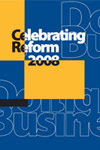
Peru: Bringing more credit to the private sector
Most entrepreneurs in search of a loan go to the bank. But in countries with inadequate collateral laws, banks are less willing to lend—as in Peru before the 2006 reform of its secured transactions law. For recording security interests, Peru used to have 17 registries for different kinds of assets, each with its own regulations and requirements.

Italy: Repaying creditors without imprisoning debtors
In 2003 Italy’s bankruptcy law was over 60 years old—not ideal to keep up with economic transformation. Judges, lawyers, businesses, and creditors all knew that the law needed to change, but the process was slow. Then, in 2003, the wake of the crisis caused by Parmalat’s demise, the Italian government finally shifted focus to implementing structural reforms to enhance Italy’s competitiveness.

Rwanda: Pragmatism leads the way in setting up specialized commercial courts
After the 1994 genocide, Rwanda recognized that it had to reform its commercial justice institutions. But the country faced a more immediate challenge from the genocide: bringing thousands of perpetrators to justice.

Tonga: Enforcing contracts quickly, with help from the neighbors
The efficiency of contract enforcement was especially poor in Tonga: it ranked 126 of 175 countries. What could be done? Bringing technology to litigation was the suggested answer. And it worked.

Poland: Fighting entrenched interests to enforce judgments faster
In Poland, going through a lawsuit and enforcing a judgment had the potential to be a nightmare. The average judgment took close to half a year to enforce, and hard-to-enforce judgments could take years.

Ghana: When enough is enough (land registration)
Since independence, the citizens of Ghana have dealt with a dysfunctional land administration system. Long and expensive procedures took up to 5 years and involved 6 different agencies. Many preferred to avoid the headache, keeping their land issues within clans or tribes—unrecorded, but simpler and cheaper for them.

Czech Republic: Creating a new profession from scratch
Until 2007, all construction permits in the Czech Republic were governed by a 1976 law. As in many other Eastern European countries, land allocation and construction were based mostly on administrative decisions and a planned economy, not supply and demand.

Portugal: One-stop shopping
In 2005 it took 11 procedures and 78 days to start a business in Portugal—slower than in the Democratic Republic of Congo. An entrepreneur needed 20 forms and documents, more than in any other European Union country, and the cost came to almost €2,000. The planning for reform began as soon as new Prime Minister Jose Socrates took office in March 2005.

Egypt: How to raise revenues by lowering fees
Over the last decade, Egypt’s economy grew rapidly. But its property market remained far below its economic potential—for government revenues and as an investment vehicle for citizens. In fact, as recently as 2005, 90% of properties in Egypt were either unregistered or registered at underestimated values.

Honduras: Slashing the time to register property from 18 months to 15 days
Honduras’s property-registry system was obsolete and created instability in the real estate market. The same property could be registered 2 or more times by different owners, leading to painful litigation. Furthermore, the system was inefficient. It could take 1 to 2 years to complete a property registration. The system was ripe for reform.

Vietnam: Protecting minority shareholders to boost investment
Investors used to be afraid to put their money in Vietnam. Why? Fear that company management would misuse funds for personal benefit. The previous laws lacked clear rules for transparency and directors’ obligations. And the regulatory system governing companies was fragmented and opaque.

Jordan: A public-private partnership brings order to Aqaba’s port
The port of Aqaba, Jordan’s only sea port, was the country’s biggest hindrance to trade in mid-2003. Waiting times for ships at berth were long, and congestion at the container terminal severe. Major international shipping lines suspended their dealings with the Aqaba Container Terminal. But by the end of 2005 the congestion had disappeared, and the congestion charge was gone—thanks to reforms.

Azerbaijan: How to reform in 3 months
Before 2008 entrepreneurs looking to start a business in Azerbaijan had to register at 5 different agencies, complete 15 procedures, and file 33 documents. It took more than 2 months. But in 2008 Azerbaijan launched a new company registration system—and the reform went through in just 3 months.

Saudi Arabia: Competitiveness from innovation, not inheritance
Starting a business in Saudi Arabia used to be limited to those who could afford one of the highest minimum capital requirements in the world—$125,000 for limited liability companies. The need to transform the Saudi economy was clear—from one based on inherited wealth to one based on innovation.

Singapore: Harnessing the Internet to streamline procedures
Before 2003, the process to start a business in Singapore was long, tedious, and too dependent on clerical staff entering data by hand. The result was dissatisfaction and delays. Now Singapore’s Internet-based system for registration, filing, and information retrieval—known as Bizfile—is making business startups easier, more efficient, and less expensive.

Turkey: Giving a facelift to the Turkish tax system
Almost all tax reforms aim at a single goal: to increase revenue. But Turkey’s 2007 reform was different—simplifying and modernizing the tax system were the key goals. The government had been concerned that an antiquated corporate tax law was hindering foreign direct investment. It wanted to align its system with international standards.
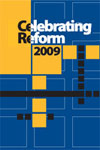
Colombia: Private help for a public problem
In 1995, Colombia became the first country in all of Latin America to privatize its building-permit review process. Fourteen years after its initial implementation, the system’s impact on the construction process is palpable. This case study looks at the reform and its impact.

Macedonia FYR: Court reform — Sustained multitasking
In November 2004, the government of Macedonia passed its far-reaching National Strategy for the Reform of the Justice System (2004–2007). Macedonia’s Ministry of Justice then set itself performance markers—an extensive list of goals to be achieved over the short and medium term. The government also provided budget requirements for the program.

Trinidad and Tobago: Bringing credit reform to the Caribbean
Before 2004, getting comprehensive credit information was a challenge for lending institutions in Trinidad and Tobago. But some saw an opportunity to innovate and create the first fully automated credit bureau in all of the Caribbean .

Serbia: Cross-border trading reforms in post-war Serbia
Serbia has made much progress in streamlining its customs procedures to be in line with EU practices, developing an electronic customs clearance system, and modernizing its cargo risk management system. This case study shows how Serbia reformed its trade practices.

Bolivia: Finance for all, Integrating microfinance to credit information sharing
In 2001, Bolivia’s borrowers had taken out too many loans and they could not pay them back. Amidst an economic crisis, people were demanding that their debts be forgiven. In July 2001, the situation got so bad that hostages were taken at the Superintendence of Banks and Financial Entities, Bolivia’s financial regulator.

Chile: Increasing transparency in insolvency proceedings
Before 2005, the receiver profession in Chile was poorly regulated and vulnerable to corruption. Scandals challenged the public’s faith in the system. To root out corruption, Chile worked to ensure that private receivers were specially trained, licensed, appointed, and paid through a transparent system.

Tunisia: Transition to open markets and an improved insolvency process
As the first country in the Middle East and North Africa (MENA) region to sign a European Union Association Agreement (EUAA) in 1995, Tunisia saw the need to strength its business environment in the face of increased competition from the European Union. Furthermore, Tunisia’s insolvency system needed to be improved as banks and other enterprises were privatized in the opening economy.

Albania: Seizing the opportunity for effective legal reform
In 2006-2007, Albania’s government, legal, and business communities all felt the need for a new commercial legal framework. To this end, Albania’s government, in 2008, passed a company law designed to make a difference in the long term.

Belarus: The story of property reform
In the late 1990s, the Belarusian government set out to streamline the nation’s onerous property registration system. To this end, a “one-stop shop” was created to help make Belarus’ property registration system one of the most efficient and sophisticated in the world.

China: New property rights law
After a record 14 years of consultation, China’s long awaited new Property Rights Law was finally passed on March 16, 2007. For the first time the law offered equal protection to socialist public property and private property.

Yemen gets serious about starting businesses
Yemen, a low-income country, sought to reach middle-income prosperity levels. In its “Strategic Vision for 2025,” the government put private-sector development at the top of its agenda. It started off by reforming business registrations—and that made Yemen one of the top reformers in the Doing Business “starting a business” category in 2009.

Azerbaijan: How to create a world-class taxation system from scratch
The government of Azerbaijan took on the challenge of creating, from scratch, a transparent tax administration system, as was necessary. The country’s tax administration was revolutionized by creating a state-of-the-art online system.

Madagascar: Trade reform gives country a competitive edge
Madagascar’s trade reform strongly emphasized the role of the private sector in spurring economic growth. As part of this program, Madagascar reformed its trade policies and procedures, and the results have been impressive. This case study follows the process.
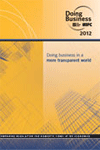
Korea: Better business regulation and improved competitiveness
In Korea the Presidential Council on National Competitiveness, created in 2008, identified regulatory reform as 1 of 4 pillars to improve the economy’s competitiveness, along with public sector innovation, investment promotion, and legal and institutional advancement. Reviewing Korea’s business regulations, the council found that 15% had not been revised since 1998. The council applied sunset clauses to more than 600 regulations and 3,500 administrative rules.

Macedonia FYR: Major changes spurred by regional integration
Regional integration efforts such as the accession process of the European Union can help drive reforms in business regulation. This has been the case in FYR Macedonia, which launched a comprehensive reform agenda after applying for EU membership. Its reform agenda has been driven largely by requirements to ensure that the country’s laws are in line with the EU legal framework. Equally important has been the desire to attract investment and develop business activity to create jobs and achieve economic growth.

Mexico: Unleashing regulatory reform at the local level
Mexico’s 31 states and 2,441 municipalities, along with Mexico City, have extensive regulatory powers, allowing them to design, implement and enforce regulations. So regulatory reform has required not only horizontal coordination among ministries, agencies, and legislative and judicial bodies at the federal level, but vertical coordination with entities at the state and municipal levels. The regulatory reform initiative in Mexico has used an exercise of benchmarking business regulation in all 31 states and Mexico City to support this coordination and stimulate change.

United Kingdom: Rethinking regulation
In the United Kingdom in 2005–10 a program reduced the burden of regulatory compliance on businesses by 25% according to the government. That amounted to savings for firms equivalent to £3.5 billion. New initiatives are under way, such as the "one in, one out" system and the Red Tape Challenge.
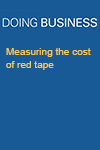
Measuring the cost of red tape
This note estimates the costs to firms from inefficient business regulations. Using the Doing Business data, we identify the time it takes in countries around the world for 6 major transactions regulated by governments: starting a business, transferring property, paying business taxes, exporting goods, importing goods and using courts to resolve a commercial dispute. Based on the data, we estimate that if the governments of 90 economies had applied best practice in regulating business entry in 2012, more than 45 million days of entrepreneurs’ time could have been saved.
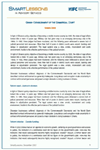
Egypt: Boosting trade
Rachid Mohammed Rachid, Minister of Trade and Industry, describes his experience as a member of the new economic reform team appointed in 2004 by President Mubarak. The team was tasked with reviving the Egyptian economy to achieve economic growth levels of 6 percent, provide employment opportunities to the 650,000 new entrants to the job market and double both the foreign direct investment inflows and total trade through more integration into the world economy.

Tonga: Electronic case management and mediation
A low ranking in the ease of contract enforcement in Doing Business in 2006—Creating Jobs prompted Tonga’s government to seek remedial action. In this Smart Lesson, Anthony D. Ford, Chief Justice of the Kingdom of Tonga, describes the range of activist measures—in particular, the introduction of electronic case management and mediation—that were instrumental in drastically improving the legal process.

Entrepreneurship around the World—Before, During, and After the Crisis
This SmartLesson paper focuses on the 2014 World Bank Entrepreneurship Database that provides a unique indicator of new business registration, allowing the measurement of entrepreneurial activity across economies and over time. The most recent data show that by 2012, only 56 percent of economies around the world had reached the level of new firm creation that they had achieved before the global financial crisis.

Establishing a Sound Credit Reporting System: Perspective from Doing Business
This SmartLesson paper focuses on the Doing Business Getting Credit – Credit Information index, which measures rules and practices affecting the coverage, scope, and accessibility of credit information available through a credit bureau or registry. Thirty-five of the 189 economies measured by Doing Business do not have an entity that manages database on the creditworthiness of borrowers in the financial system.

Ghana: Establishment of commercial courts
This lesson is part of the Doing Business series, written by "star reformers." An often-repeated remark about George Kingsley Acquah, Ghana’s Chief Justice from 2003 until 2007 and driver of his country's major judicial reforms, was that "it took a man like him for this to happen." Sandra Cofie, author of "Ghana—Establishment of Commercial Courts," says she subscribes to this view. She observed him from her position as Director of the Judicial Reform, Project Development and Implementation Unit at the Judicial Service of Ghana.

Italy: Modernizing Italy’s bankruptcy law
Reforming bankruptcy laws can be difficult for many reasons. In Italy, first of all, attitudes toward bankruptcy made it a difficult subject to generate support for. Secondly, bankruptcy reforms are often complex and lengthy: They require changes not only to the bankruptcy law, but also to other important parts of the legal framework—such as the codes of civil procedures and, in the case of Italy, the penal code. Finally, they require support from those that must implement them. This paper outlines Michele Vietti's experience in leading Italy's Commission for the Reform of the Bankruptcy Law and the lessons he learned from it.

Portugal: One-stop shopping
This lesson is part of the Doing Business series, written by “star reformers.” In 2005, entrepreneurs were required to complete 11 procedures that took an average of 78 days to start a business in Portugal, making it a slower process than in the Democratic Republic of Congo. As soon as new Prime Minister Jose Socrates took office in March of 2005, the planning for reform began.

Egypt: How efficiently Is capital created? Evidence from property registration reform
Many developed countries, and countries on their way toward development, have simple, inexpensive and fast property registration processes. Low property registration fees encourage every property holder to receive a formal title. The poor especially benefit, because they can use their property as collateral, start doing business and work to achieve their dreams. This paper discusses the property registration reform in Egypt that focused on two areas: the cost and quality of procedures.

Poland: Taking on the bailiff monopoly
Krzysztof Józefowicz, Under-Secretary of State at the Ministry of Justice in Poland between December 2005 and March 2007, talks about difficulties in breaking up the bailiff monopoly. “Bailiffs are enforcement officers charged with executing judgments by seizing and selling the goods of debtors who do not pay their debts on time,” he explained. “In Poland, the bailiffs enjoy a quasi-monopoly because just one bailiff per enforcement precinct is allowed, prices are fixed by law and entry into the profession is nearly impossible. Shielded from any competitive pressures, Polish bailiffs deliver poor service and the execution of judgments in Poland is patchy at best.
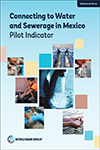
Connecting to Water and Sewerage in Mexico
Subnational Doing Business, through a set of pilot indicators, analyzes the process that an entrepreneur in Mexico must undertake to connect a commercial establishment to the water and sewerage systems.

Mexico: Creating competition to reform among states
Publishing comparative data on the ease of doing business across various states in Mexico inspired many local governments to introduce swift reforms. The Doing Business in Mexico study proved to governors and mayors that they can improve competitiveness and create more jobs with simple reforms.

Nigeria: Data collection at the subnational level: Lessons from Nigeria, Africa’s giant
Benchmarking local commercial regulations is useful, not only for assessing the impact of the regulatory environment, but also for stimulating public debate on reform. Producing a rigorous set of primary quantitative micro data can be challenging even in the best of circumstances.
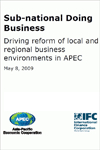
Mexico: Compare, compete, cooperate: How subnational Doing Business helps Mexican states to improve commercial regulations
Over the past three years, the experience in Mexico has demonstrated the impact of the Doing Business in Mexico 2009 report (available in Spanish only) on state and municipal policy reforms.

Philippines: Laying the ground for regulatory reforms for national and local competitiveness
The business environment in the Philippines is costly and overregulated, with wide variations observed in the implementation of national regulations among local government units. This case study looks at the challenges of pursuing reform and research in such an environment.
